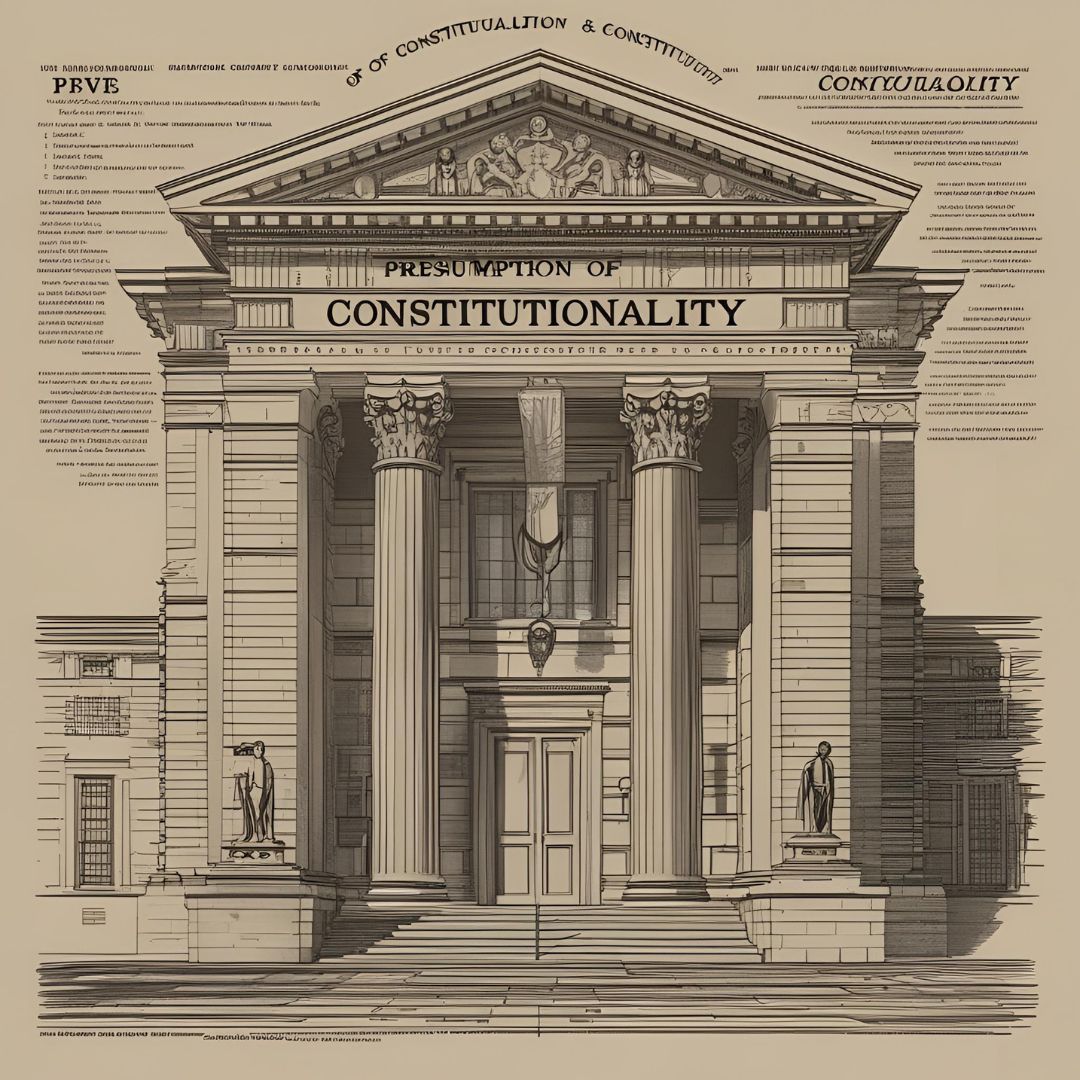The Presumption of Constitutionality is a well-established principle in constitutional and statutory interpretation. It means that courts presume that every statute enacted by the legislature is constitutional, unless it is clearly proven to be otherwise. The burden of proving unconstitutionality lies upon the person who challenges the law, not on the government that enacted it.
This principle is based on the assumption that the legislature understands the limits of its authority and will not enact laws that violate constitutional provisions. Therefore, unless there is a clear and unambiguous violation of the Constitution, courts will lean in favor of upholding the validity of legislation.
Additionally, when a statutory provision is reasonably open to more than one interpretation, courts will choose the interpretation that makes the law constitutional, rather than the one that invalidates it. This approach is often called “reading down” the statute to bring it in conformity with the Constitution.
Key Features and Application:
The presumption applies only when the statute is reasonably capable of a constitutional interpretation. It does not allow courts to rewrite the statute or ignore clear violations of fundamental rights. Instead, courts must interpret the provision in such a way that it harmonizes with constitutional values, wherever possible.
This principle is procedural and interpretive, not substantive. It acts as a guiding rule for judges, ensuring that the judiciary does not strike down legislation lightly or hastily, thereby respecting the doctrine of separation of powers.
Example:
Suppose a law regulating public meetings appears vague and could be interpreted as violating the freedom of speech. If it is possible to interpret it in a limited way that respects constitutional freedoms (such as by applying it only in the interest of public order), courts will adopt that narrow interpretation and uphold the law rather than striking it down.
Judicial Position:
In State of Bihar v. Bihar Distillery Ltd. (1997), the Supreme Court of India stated that there is always a presumption in favor of constitutionality of statutes and the court must try to sustain the validity of legislation by reading down or limiting its application.
Code to Remember the Answer: “VALID”
| Letter | Stands For | Explanation |
|---|---|---|
| V | Valid Until Proven Void | Every law is presumed valid unless clearly unconstitutional. |
| A | Assume Legislative Wisdom | Courts respect legislative judgment unless there is a clear violation. |
| L | Lean Toward Constitutionality | Interpretation should favor constitutionality when possible. |
| I | Interpretation Preferred | If two interpretations exist, the one that upholds the law is preferred. |
| D | Duty on Challenger | The burden to prove unconstitutionality lies on the person challenging it. |

